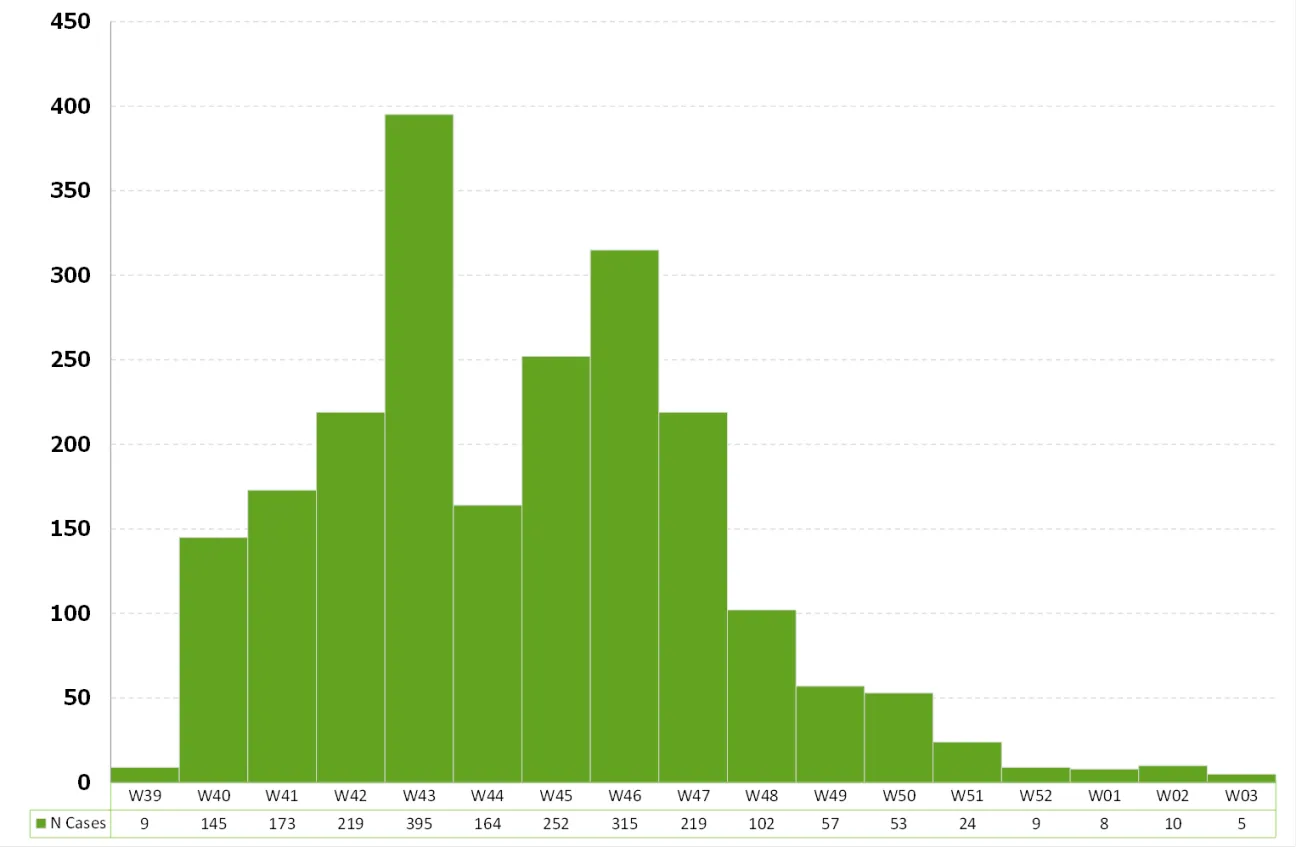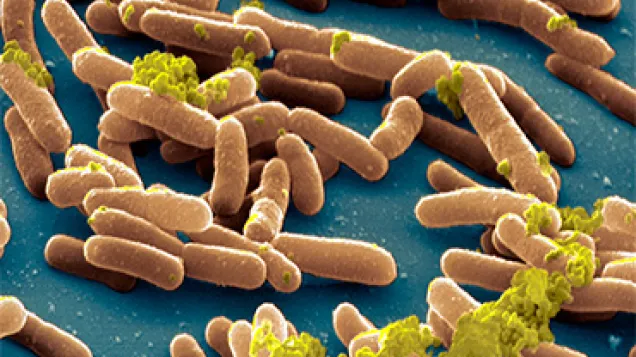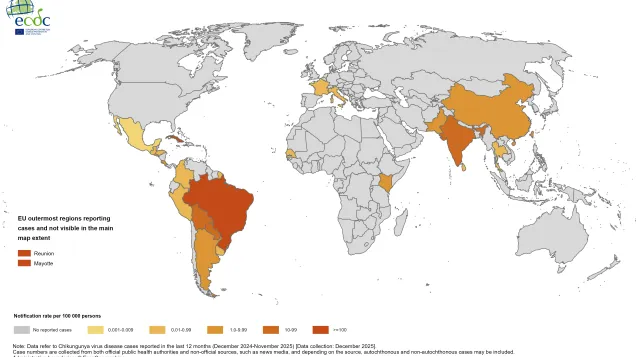Epidemiological update: Outbreak of dengue in Madeira, Portugal, 13 February 2013
As of 3 February 2013, the Portuguese Ministry of Health has reported 2 164 cases of dengue infection (Figure 1) from the Autonomous Region of Madeira since 3 October 2012. No deaths or cases of severe dengue have been reported. All reported cases refer to the resident population of the island.
Seventy-eight patients have been diagnosed in European countries with dengue infection after returning from Madeira: 11 in mainland Portugal, 23 in the UK, 19 in Germany, three in France, five in Sweden, seven in Finland, two in Denmark, two in Austria, and two in Norway. Croatia, Slovenia, Spain and Switzerland have all reported one case each. The latest case was reported on 1 February 2013 from Finland.
The latest figures from the Portuguese Ministry of Health indicate an important decrease of the number of notified cases reported since mid-November 2012, week 46. However, the outbreak is still on-going with 28 cases reported in 2013 and three cases last week recorded by the local epidemiological surveillance system. This is indicative of an uninterrupted transmission occurring since the start of the outbreak and continuous vector activity. In addition, based on retrospective information on vector surveillance and meteorological data, the seasonal increase of vector activities will likely take place from around May-June 2013.

Figure 1 - Weekly number of dengue case from week 39/2012 to week 3/2013 - Probable and confirmed cases, n=2 164 excluding imported cases in the EU
On 20 November 2012, ECDC published a rapid risk assessment concerning the autochthonous dengue cases in Madeira which outlines the measures implemented in response to the outbreak. ECDC advises residents and travellers visiting the island of Madeira to take individual protective measures (like using repellents) to avoid mosquito bites. Dengue is transmitted by a daytime mosquito and consequently protective measures must be applied throughout the day. Travellers experiencing febrile symptoms with severe headache, retro-orbital pain, myalgia, arthralgia and maculo-papular rash within 21 days of visiting Madeira are advised to seek medical advice.
ECDC continues monitoring the situation in collaboration with National and regional (Madeira) public health authorities in Portugal and gathering information on confirmed cases reported by EU/EEA Member States among returning travellers.



